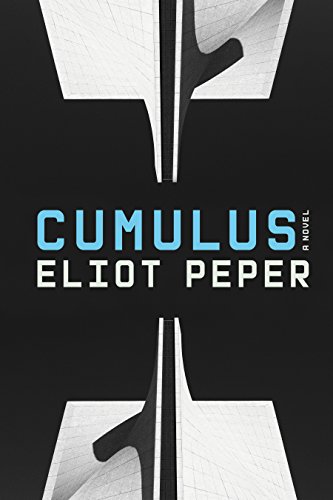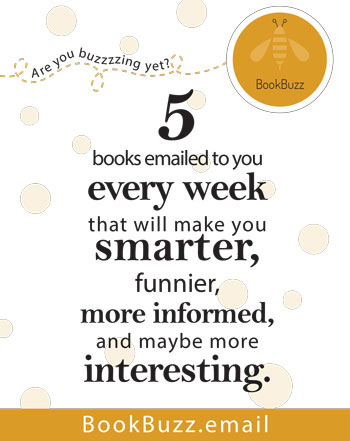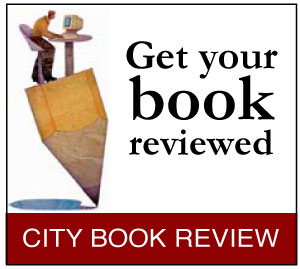Tell us a little bit about yourself and how you came to write your book.
I’m the author of Cumulus, Neon Fever Dream, and the Uncommon Series. All my novels are fast-paced, deeply-researched thrillers that explore how technology changes our lives. They’ve hit #1 in their Amazon categories and have been praised by Businessweek, Ars Technica, Popular Science, TechCrunch, GeekDad, and others. I maintain a popular reading recommendations newsletter and am an editor at Scout, a publication that combines tech analysis with science fiction to make sense of the future. I’ve helped build numerous technology businesses, survived dengue fever, translated Virgil’s Aeneid from the original Latin, worked as an entrepreneur-in-residence at a venture capital firm, and explored the ancient Himalayan kingdom of Mustang. I’m currently working on a new novel, The Feed, and a short story, Blue Eyes. When I’m not writing, I advise entrepreneurs and investors and have been a speaker at places like Google, Qualcomm, and Future-in-Review.
What was this book about, and where did your decision to write it come from?
Cumulus is a science fiction thriller that takes place in a not-so-distant future in which economic inequality and persistent surveillance push the San Francisco Bay Area to the brink of civil war. It features a diverse cast and raises critical questions about the social implications of technology. Reviewers have compared it to books by William Gibson, Neal Stephenson, and Daniel Suarez. If you enjoyed Minority Report, you’ll probably get a kick out of Cumulus.
There were two big ideas that inspired the novel. First, increasing economic inequality is the single greatest threat facing our nation. It undermines economic growth, exacerbates social injustice, and endangers the world we’re bequeathing to our children. Second, technology is fundamentally changing our relationship with each other and the world at large. One major consequence is that major tech companies are now more powerful than many nation states, and we need to remake our political institutions for a new era of accelerating change. I’ve written extensively about what inspired the novel, and if you’re interested you can find more details here.
How long did it take you to write the book?
It took four or five months to write the rough draft. The ideas had been percolating for a long time before that.
Did you have a publisher or agent? If not, was it by choice?
Nope. I’ve been very happy self-publishing, although I consider all publishing paths for each new title. My goal is to do whatever’s best for the story.
Did you use anyone to help with the finished design? Editors, cover designers, etc.?
Yes, I put all my novels through a rigorous editorial and production process. I hire multiple developmental editors, copy editors, and professional proofreaders for each book. My cover and interior designer is world class and has worked with many large publishers. Here is a series I wrote about my editorial process and here is a detailed post in which my designer walks through the production of Cumulus.
Did you use any paid advertising or posts? Did you use social media, guest posts, interviews or other personal marketing?
All of the above. Most of the paid experiments didn’t pan out. The only one that was worthwhile was to boost the launch announcement on my author Facebook page so that fans actually saw it. Bookbub was also useful but is extremely competitive.
Where did you get your first reviews for the book? How did you discover which places to get reviews?
Cyrus Farivar at Ars Technica wrote the very first review of Cumulus. That review went viral on r/books with more than two thousand upvotes and hit front page Reddit on launch day. That drove thousands of sales, tens of thousands of click-throughs, yielded a dozen inquiries from literary/film agents/editors/producers, and led to follow-on reviews in Businessweek, Popular Science, and TechCrunch. Cyrus had requested a review copy of Cumulus when I randomly met him at a bar in Oakland months earlier. I had no idea that any of this would happen.
What marketing event or plan was your most successful? How did you come up with the idea, and how did you execute it?
The Ars Technica review going viral did more than any marketing I’ve ever done for any of my books. It was totally unplanned and serendipitous. I wish I know how to replicate it!
What did you do that yielded results?
As an indie author, it’s difficult to rise above the noise and reach new readers. When I’m writing a new story, all I think about is craft. But once the new story is done, I think about it as a product that needs to be marketed and sold.
I’ve experimented with loads of different approaches: Facebook ads, Twitter ads, Amazon marketing services, hosting events, targeted giveaways, creating social media accounts for characters, even having an oped published on a major tech news site under the protagonist’s byline. I tracked inbound traffic and sales performance and ran tightly controlled A/B tests. Almost universally, these experiments failed to produce meaningful results. A few, like running a Bookbub deal, worked okay, but are hard to replicate because admittance is competitive.
The only thing that’s worked is building long-term relationships with readers. Those readers include close friends and family who are excited about my books because they know me, fans who follow me on social media or subscribe to my reading recommendation newsletter, other authors whose books I love, influencers who command audiences of their own, or folks whose work inspires me.
My goal with all of these relationships is to help the other person achieve their own goals and dreams. If I have a new story that I think would really resonate with them, I’ll share it. But that’s really just one part of a much larger effort. If a fan signs up for my author newsletter, I share books that have changed my life that they might enjoy. If I’m invited to speak at a conference, I research why people attend and craft stories to inspire and move them. If someone asks me for advice, I do my best to share what I’ve learned. If a journalist reviews my books, I make sure to read and share their work. If someone needs a helping hand, I make introductions to kindred spirits. If I agree to come on a podcast, I obsess over who their audience is and what specific take-aways I can leave them with. If an editor invites me to write an essay for their publication, I pour blood, sweat, and tears into the piece.
It’s all about creating gifts for other people on their terms. Give, give, give, give, give, and give. It’s not give and take. It’s give and receive. Add enough to the karma bank, and you’ll be amazed what serendipity delivers to your doorstep at the most unexpected times.
What are your book sales like?
I’m always shocked at how variable my book sales are. Some months I sell thousands of copies, and some months I sell dozens of copies. My sales currently average in the hundreds per month, but the range is counterintuitively wide.
What books influenced your writing and your book marketing?
Oh wow, I could go on forever. A few absolutely critical ones are Stephen Pressfield’s The War of Art, Kristin Kathryn Rusch’s Discoverability, Stephen King’s On Writing, Cory Doctorow’s Information Doesn’t Want to be Free, Derek Thompson’s Hitmakers, David Fugate’s Unconventional Guide to Publishing, and Anne Lamott’s Bird by Bird. Kevin Kelly’s essay 1,000 True Fans is an absolute must-read and Tucker Max’s book launch guide outlines many of the in-the-trenches tactics I leverage for every release.
What tools do you use for marketing or writing?
I write and edit in Word, Scrivener, and Google Docs. I distribute advance and review copies with BookFunnel. I manage my newsletter with Mailchimp. I host my author site on Blogger. I’ve used Bookbub and quite a few other daily deal services. I’m active on Twitter, Facebook, Goodreads, Wattpad, and Medium. Bound has licensed two of my novels to adapt into digital serials.
What tips or suggestions would you give to someone else getting ready to publish or market a book?
Focus on how you can improve other people’s lives. Take a step back and think like a reader. Share books you love. Be kind, enthusiastic, generous, and respectful. Tell the best stories you possibly can.




